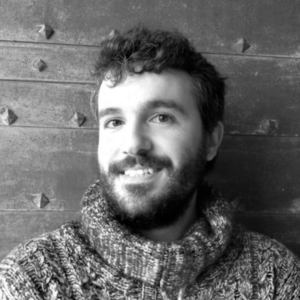Jorge Magaz-Molina is a PhD student in the Department of Architecture at the University of Alcalá (Spain). He holds a Master’s degree in Architecture from the same university, and during his training, he carried out stays at the IUAV (Italy) and the State Linguistic University of Irkusk (Russia). He has a background in LGBT policy and is trained in gender studies.
Jorge is completing his PhD thesis on cultural landscape policies related to the industrial energy legacy in the context of the current processes of reconversion derived from climate change, under the supervision of Dr. Layuno Rosas. He has participated in the research project “The image of the National Institute of Industry in Spain: Cartography and Industry Landscape of Francoism” funded by the Spanish Ministry of Science, carried out stays in Italy and Malta, and presented his research in more than a dozen conferences across Spain, Portugal, Italy, and Canada. He teaches History of Contemporary Architecture and Industrial Heritage Enhancement at the University of Alcalá and has also coordinated several seminars at the National University of Distance Education (UNED).
Project statement
Analysis of the industrial mining landscape of Bierzo and Laciana: transformation processes and recovery potential for local development
Jorge’s PhD project is a critical analysis of cultural practices and processes around the industrial legacy developed over the last 30 years in Spanish Northwestern mining basins. Jorge is interested in the role valorization of industrial heritage has played on regional identity- building processes during the democratic period. He tracks down statements related to heritage enhancement actions proposed for economic tertiarization purposes of the mining basins, and studies the scope and implementation of such projects. In particular, his thesis focuses on a region that was relevant to Franco’s industrialization program and explores how these types of territories deal with a constellation of degraded spaces and abandoned industrial facilities, company towns, and forced labor camps following processes of industrial restructuring or closure due to environmental reasons. This thesis seeks to identify (1) formal or community operational measures put in place to preserve heritage sites of conflictive memory, and (2) the contribution of heritage enhancement initiatives aiming to recognize the diversity of local communities and democratic memory. Particular attention is also paid to the design and architectural considerations applied to landscape restoration projects and the rehabilitation of industrial sites.





